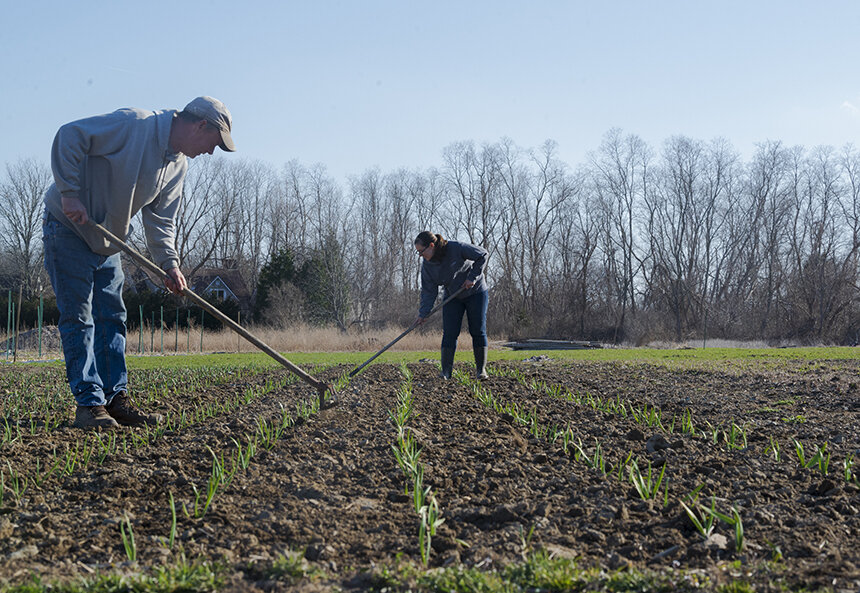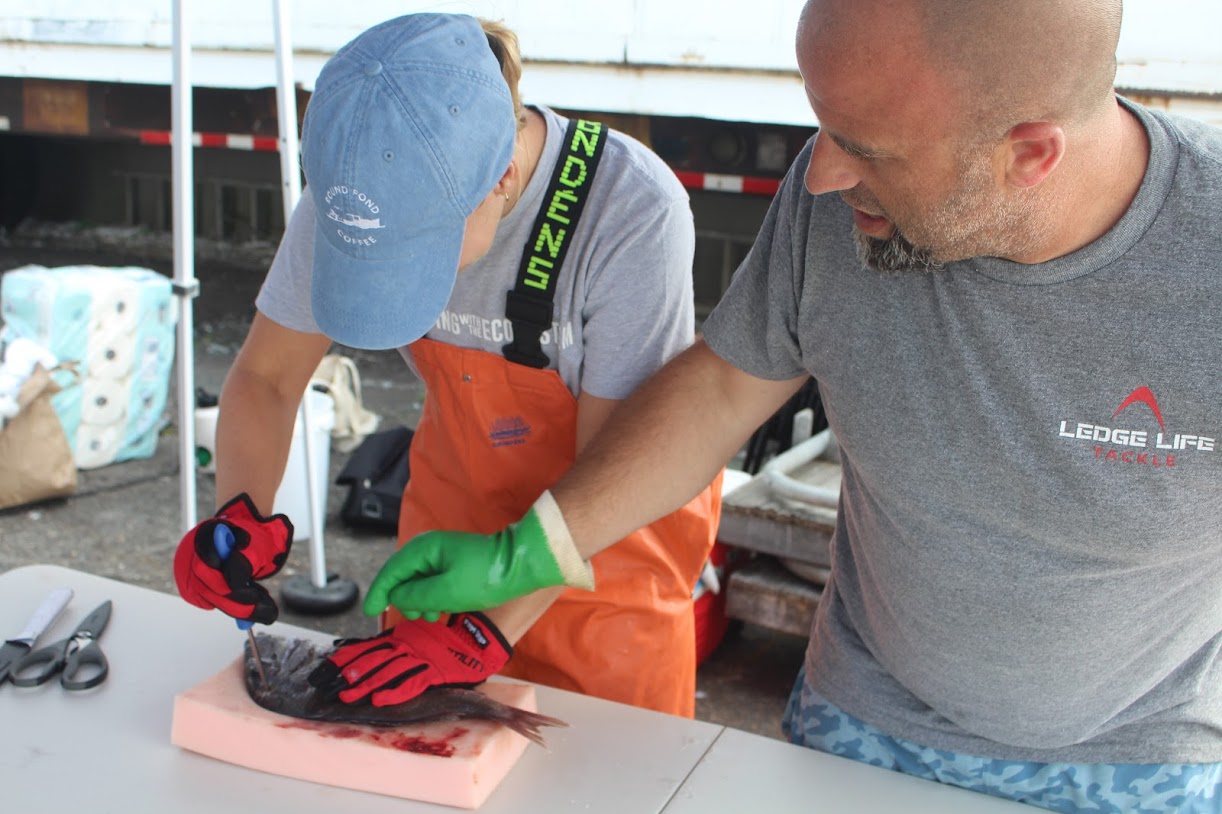City Farm Spreads the Urban Farming Gospel
July 3, 2011
PROVIDENCE — There’s an urban farming revolution underway in Rhode Island, and City Farm deserves much of the credit.
The three-quarter of an acre farm in the heart of South Providence has served as an outdoor classroom for three decades. Kids, college students and inspired backyard gardeners have visited this urban oasis for a food-growing education. Its bounty and beauty — cultivated for the past nine years by Rich Pederson — has inspired apprentices, interns and volunteers to grow fruits and vegetables in vacant lots, on porches and in backyards.
The farm has fostered a vibrant local food movement — City Farm alone grew 1,539 pounds of food last year, everything from arugula to tomatillos— and helped bolster Rhode Island’s burgeoning farmers’ market scene.
“The big thing at City Farm is there’s a shared sense of ownership,” said the farm’s current apprentice, Laura Brown-Lavoie. “Everyone is encouraged to think of themselves as stewards of this space. We share in the responsibility of passing along how to care for this space and soil.”
Many of those who have learned under the tutelage of Pederson or his predecessors have taken their refined skills and food-growing experience into the community, be it a few blocks around the corner, across the state or across the ocean.
“A lot of young farmers have come through here the past 30 years,” Pederson said with a sense of pride as he rattled off names from memory. “They’ve come here and learned and took their skills into the greater world. A lot of them are doing amazing work.”
A former high school intern is now farming in Hawaii, and a former volunteer is a landscape architect in California. Former City Farm regular Diana Kushner owns Arcadian Fields in Hope Valley, volunteer Christian Nelson is now farming in California and Joe Donegan runs a dairy farm in Vermont. Devon Chase is farming in eastern Massachusetts.
Providence College graduate and former City Farm apprentice Sean O’Brien grows food on a small plot behind Frey Florist & Greenhouse in the city’s Smith Hill district. Longtime City Farm volunteer Chris Ackley is now the open space steward for the Olneyville Housing Corporation. Another former volunteer, Derek Mitchell, runs a program in Lowell, Mass., that teaches kids about agriculture. Ben Torpey works at the International Institute of Rhode Island teaching kids how to build community gardens, among other things.
Former Pederson apprentice and City Farm volunteer Than Wood learned more than just how to farm during his three years working the South Side plot. He met a future urban farming partner there, made many friends and connections, and ate chard and kale for the first time.
“Working at City Farm taught me there was a different way of living,” the East Providence native said. “City Farm made me a happy and healthier person. It put me on a path to a better lifestyle.”
His experience there also gave Wood the confidence two years ago to turn the site of a burned-down home on Westminster Street into a thriving urban garden. The debris-speckled neighborhood eyesore now has a name — Front Step Farm — and features various shades of green, red tomatoes, patches of raspberries and colorful flowers to attract pollen-moving bees.
Wood sells his produce through a community-supported agriculture program he started with Brown-Lavoie, the current City Farm apprentice whose time at the South Side institution overlapped with his.
This spring, a few blocks over from Wood’s farm, Brown-Lavoie, her sister Tess and childhood friend Fay Strongin transformed a vacant lot on Harrison Street into Sidewalk Ends Farm — another derelict city lot that is now producing food.
“City Farm has set up this urban farming infrastructure that we all use,” Wood said.
Behind this recent emergence of urban farming, is Pederson, a friend and teacher to many who are now growing food, whether it’s in a city, out in the countryside, in Rhode Island or across the Pacific in the Aloha State.
“Rich is a little bit sage like,” Wood said. “He’s very valuable to have around, he’s supportive and he’s a wonderful teacher.”
Brown-Lavoie noted that Pederson is “really invested in the relationships he makes at the farm. All the volunteers feel a sense of pride in the work they do because Rich makes everyone feel apart of the farm’s mission,” she said.
The 43-year-old farmer with the straggly beard deflects any individual praise, and said City Farm is designed to encourage and help people grow food and be productive land stewards without the use of chemicals and unnatural fertilizers.
A century ago, one out of every two Americans was growing food in some capacity. Today, Big Agriculture does most of our food growing, as less than 2 percent of Americans grow food of any kind.
Pederson and City Farm’s many disciples are trying to increase that paltry percentage by encouraging the production of hyper-local produce that travels less than 3 miles from farm to table. People can grow food in the city. They can grow a lot of food in the city, Pederson tells visitors to the Southside Community Land Trust farm. They can be producers in a consumer society.
“I’m so lucky this exists,” said Brown-Lavoie, as she picked raspberries from City Farm’s many bushes. “Sidewalk Ends Farm wouldn’t exist without it.”
Categories
Join the Discussion
View CommentsRecent Comments
Leave a Reply
Your support keeps our reporters on the environmental beat.
Reader support is at the core of our nonprofit news model. Together, we can keep the environment in the headlines.
We use cookies to improve your experience and deliver personalized content. View Cookie Settings




Great article Frank. You really get it! I mean that.
At City Farm, a journey begins, that for some of us, never ends: deep connection with nature, and the courage to cultivate plants, wherever you are.